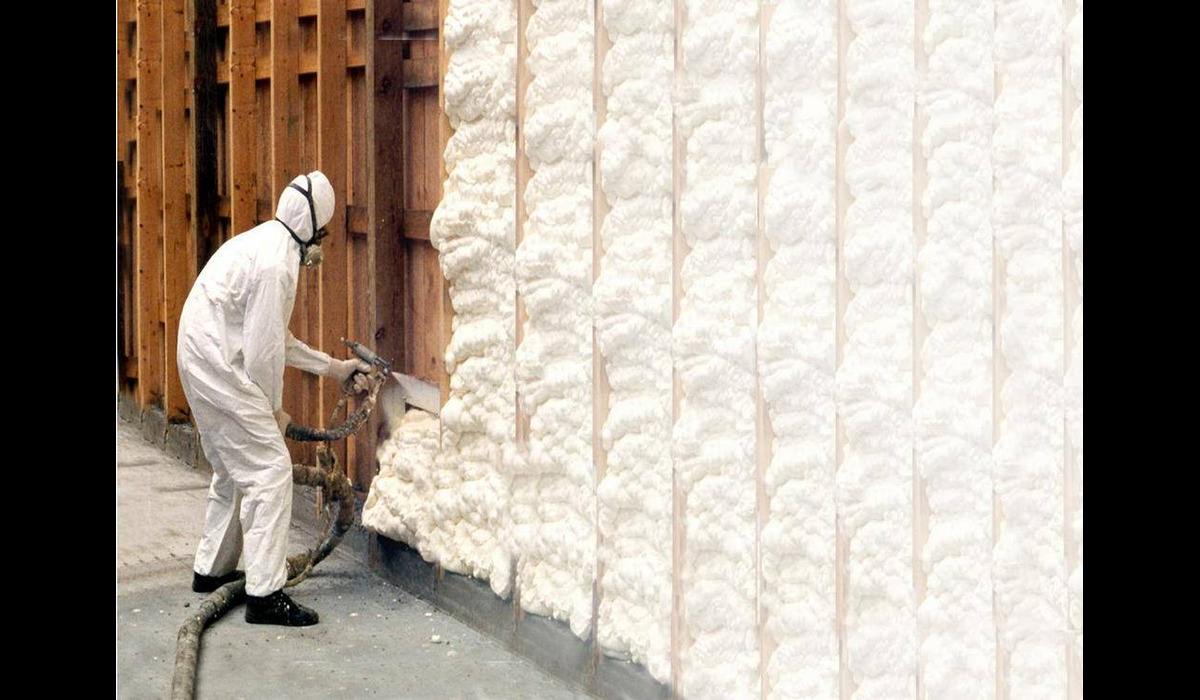The kind of insulation you choose for commercial buildings can make all the difference in building and construction. After looking at all of the options, spray foam insulation appears better because it does a great job of sealing out air and keeping heat in.
Let us go over everything you need to know about spray foam insulation, including what it is, how it works, the different kinds, and all the great things it can do for businesses.
What Exactly Is Spray Foam Insulation?
Picture a material that starts as a liquid and then expands into a solid, foam-like structure – that’s spray foam insulation for you. It’s prepared from two primary ingredients: isocyanate and polyol resin.
When mixed, they react and expand, forming an insulating layer that’s hard to beat. As this reaction happens, it creates a strong barrier against heat and cold.
The Mechanism Behind Spray Foam Insulation
So, how does this material work?
There are three main ways:
Air Sealing: Spray foam fills in cracks and holes by expanding, making a seal that keeps air out. This is an important feature because it stops air leaks, which are a common way for buildings to lose energy.
Insulation: With an impressive R-value (a metric for how well it insulates) spray foam keeps heat flow at bay. Open-cell foam only has an R-value of 3.5 per inch, while closed-cell foam has an R-value of 6 to 7 per inch.
Moisture Barrier: The closed-cell type also doubles as a moisture blocker, preventing the problems of mold and structural harm.
Open-Cell vs. Closed-Cell Spray Foam
Spray foam insulation can be broken down into two groups: open-cell and closed-cell, and each has its own benefits.
Open-Cell Spray Foam
The texture of this lighter, more flexible version is like a sponge. It does not insulate as well, but it blocks out noise better and costs less. It also works great indoors, where moisture is not a big problem.
Closed-Cell Spray Foam
Closed-cell foam, which is denser, is better at insulating and blocking moisture. Even though it costs more, this is the best choice for exteriors and wet areas because it gives the structure more strength.
The Benefits for Commercial Properties
Filling in gaps with spray foam insulation is not the only thing it does well. It also improves the building’s performance in other ways:
Energy Savings: Cutting down on heating and cooling needs, spray foam greatly slashes energy bills.
Moisture Mastery: Closed-cell foam wards off moisture, protecting against mold and damage.
Pure Air: The airtight seal means less outdoor pollutants and allergens infiltrating indoor spaces.
Bolstered Structure: Closed-cell foam can enhance a building’s resilience to natural forces.
Quiet Comfort: Both foam types are adept at muffling sound, providing a serene environment.
Durability: Spray foam stands the test of time, requiring minimal upkeep and remaining effective for years.
Flexible Application: Its ability to conform to various surfaces and fill odd spaces makes spray foam incredibly versatile for different building parts.
Choosing Wisely
The benefits of both types of spray foam make it attractive but having professionals install spray foam is absolutely necessary.
That’s because moisture issues, off-gassing, and inefficiency are all possible outcomes of a poorly executed job. So, just as important as selecting the insulation is selecting the proper crew to get it installed.
Final Thoughts
Spray foam insulation is one of the best types of insulation, especially for businesses that want to make their buildings more comfortable, energy-efficient, and long-lasting. With knowledge of the different types, how they work, and their benefits, property owners can make smart choices.
When commercial spaces are insulated with spray foam, they become more environmentally friendly, comfortable, and cost-effective.
For More Information, Visit Isothane




